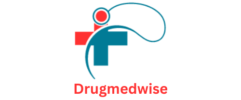Depression is a debilitating condition that affects many aspects of life. Anti-depression pills can be a vital component of treatment. This article delves into the types of anti-depression medications, their benefits, and potential side effects.
Table of Contents
ToggleTypes of Anti-Depression Pills
Selective Serotonin Reuptake Inhibitors (SSRIs):
- Common Medications: Fluoxetine, Citalopram
- Benefits: Fewer side effects compared to older antidepressants
- Side Effects: Sexual dysfunction, weight gain
Serotonin-Norepinephrine Reuptake Inhibitors (SNRIs):
- Common Medications: Duloxetine, Venlafaxine
- Benefits: Also effective for anxiety
- Side Effects: Increased blood pressure, insomnia
Tricyclic Antidepressants (TCAs):
- Common Medications: Amitriptyline, Nortriptyline
- Benefits: Effective for severe depression
- Side Effects: Dry mouth, blurred vision, constipation
Monoamine Oxidase Inhibitors (MAOIs):
- Common Medications: Phenelzine, Tranylcypromine
- Benefits: Effective for atypical depression
- Side Effects: Dietary restrictions, high blood pressure
Benefits of Anti Depression Pills
- Improved Mood: Helps in reducing symptoms of depression.
- Enhanced Daily Functioning: Improves overall quality of life.
- Better Sleep: Helps in regulating sleep patterns.
Conclusion
Anti-depression pills can provide significant relief from depression symptoms. It’s important to work closely with a healthcare provider to find the right medication and manage any side effects.



